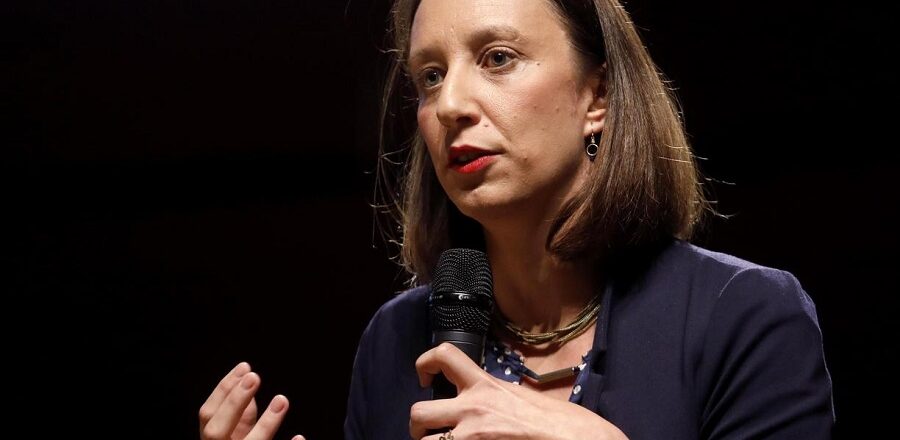
IED, Caterina Avanza: “Important Directive, but it must be revised”
Putting small farms with large industries when it comes to emissions, as proposed by the European Commission, makes no sense, neither environmentally nor economically. We talk to Caterina Avanza from Azione and Renew Europe.
Emissions of livestock farms, even the smallest, equated to those of large industries—one of the many non-senses of recent years proposed at the European level. On 5 April 2022, the European Commission proposed a revision of the Industrial Emissions Directive (IED), including farms up to 150 LSU (Livestock Units). If approved, the survival of small farms would be endangered. We wanted to deepen the issue with Caterina Avanza, Head of the Agriculture of Azione and Political Advisor to the European Parliament in the Renew Europe group.
The limits and contradictions of this directive are immediately clear. “There is a systemic contradiction in cattle farming,” Avanza explains: “The IED is an important directive which wants to have protocols for those industries that are extremely polluting. So, it is necessary and affects about 50 thousand large industrial plants. Enlargement to agriculture already existed for pigs and poultry, while cattle were excluded. With the revision, the Commission includes cattle. It lowers the thresholds drastically: 150 LSU represent 150 adult cattle or 375 calves, 10,714 laying hens or 5,000 broilers, 300 breeding sows or 500 fattening pigs, so actually medium-small holdings. The thresholds provided to date were 2000 places or 750 sows and 40,000 units for poultry.”
This, according to Caterina Avanza, “is a very serious mistake of the Commission because it means entering small and medium-sized farms in a protocol provided for steel mills, therefore a very complex and very expensive protocol, which has absolutely no economic sense and above all it gives a wrong message: ‘small is beautiful’. This makes sense, perhaps, in certain agricultural contexts in the mountains, which must be valued and encouraged precisely for their environmental role. Still, in an economy, agriculture makes no sense.”
Those who want to make the leap and succeed in the ecological transition, the expert of Renew Europe emphasizes, “must have a certain critical size to be able to make investments on animal welfare, biomethane, regenerative agriculture etc. If you do not have a critical size, like many livestock companies in Italy, you cannot aspire to be almost zero impact“.
The #European Commission has proposed with the #IED to put small #farms and large #industries on the same level when it comes to #emissions, but this makes no sense. Click To TweetAvanza says the directive pushes farmers to remain small to avoid entering an administrative nightmare of costs and complex protocols. The Commission has estimated implementing the rules at 323 million euros, almost all of which farmers will bear. “We are already in a situation of very high production costs; if we create new ones, it is clear that it affects the margin of our companies and their ability to invest. Who finances the ecological transition if the message is ‘small is beautiful’?” Avanza says: “It is clear that the European Union and the Regions are financing part of it, but we know that without private investment, we will not be able to leap. That is why we, as Azione, have proposed to restore Industry 4.0 and extend it to investments for the ecological transition”.
Another important point, according to Caterina Avanza, is the risk of the livestock sector losing the battle with public opinion. “Try to ask a citizen of Brescia, my hometown, what caused the fine dust. He will answer about intensive livestock farming. No matter if the Arpat in Lombardia shows the real data, fine particles in the province of Brescia depend on agriculture for only 15% and not 90% as the citizens perceive. The problem is that we live in a world where perception is more important than scientific reality.”
The Commission is clearly politically influenced by these views and certain decisions taken by governments. So “there is indeed the need to communicate scientific data and explain what is the reality of our companies today “, Avanza points out: “The good news is that today we have technology at our disposal to drastically reduce, for example, emissions of nitrogen, CO2, ammonia, because we have science and digital technology that allows it. This implies an important investment; therefore, in my opinion, companies and supply chains should be more accompanied in this process. Many farmers and livestock farms are ready to make a qualitative leap in this direction, but a slice of this industry cannot afford it because they don’t have the critical size or capacity to do so. It is impossible to leave companies that are still polluting because they affect the image of an entire supply chain. Political courage is needed, in my opinion, to create funds for conversion when necessary and converting these companies”.
The #technology to drastically reduce #nitrogen, #CO2, #ammoniaca emissions are ripe. Major #investments are needed, and accompanying #businesses and #businesses in this. Click To TweetThe farmers themselves are asking for that: “A farmer who invested and is virtuous, when he sees a colleague spreading slurry illegally, he knows that this is a very important damage to the image of the sector and when the battle with public opinion is lost, we find ourselves with some wicked political choices“, Avanza continues: “Like the one made by Netherlands, for example, to reduce by 30% the number of animals in all farms, regardless of the type of farm and of how much has been done to zero its emissions. In practice, they are typically ideological choices that do not lead to the desired result. Because if you cut the animals in a virtuous company as much as in a polluting company, you do not decrease or zero emissions. We must be courageous to say that “intensive” is not a bad word when associated with sustainability. Today we can produce more per hectare with less fertilizer, pesticides, and water; above all, we can integrate agricultural waste into a circular economy. The choices on the emissions directive go in the wrong direction, both as a message and as a real application on the territory”.
The IED is a proposal from the Commission with an application by 2027, which reached the European Parliament and is being discussed. “There will indeed be time to learn how this directive works, but the fact remains that 150 LSU make no sense,” the Political Adviser of Renew Europe explains: “We hope that the Parliament and the Council will succeed in raising these thresholds. The rapporteur has indicated that he would like to increase the threshold to 600 LSU, which seems more logical. Then there will be a whole work of preparation of the supply chains, for companies that exceed that threshold, to be able to comply without endangering their survival.”
The #FoodSovereignty can only happen at the European level, because we don't have one #agriculture, but we have different #AgriculturalSystems and agricultures. Click To TweetFinally, there is food sovereignty, not to be underestimated, especially in this historical period. Also on it, Caterina Avanza has very clear ideas: “It can only happen at the European level because we do not have a single agriculture, but we have agricultural systems and different agricultures, which if integrated with a common agricultural policy or common interests and a common long-term strategy, they can restore Europe to food sovereignty. We could not eat only with the agriculture of the north because the climate does not allow the production of melons in Ireland, while it allows it in Italy and Spain. There are no dogmas of northern Europe towards those of southern Europe. Still, many integrated agricultural systems allow Europeans to have a healthy diet and the most sustainable agriculture in the world“.



